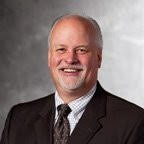Q&A: Tips to thrive as an independent practice in the age of consolidation
From private equity buyouts to provider organization mergers, the healthcare landscape is evolving, leaving patients with fewer options. However, some independent practices are thriving and defying this trend, despite economic pressures like inflation and reduced reimbursement rates pushing them toward consolidation.
Rik Baier, CMPE, a long-time leader of independent practices in Illinois, has found a way for his organizations to succeed. He is currently the Chief Executive Officer of Barrington Orthopedic Specialists and the Schaumburg Surgery Center, overseeing four locations that offer comprehensive physical and occupational therapy services. Baier is also a member of the advisory council for Stitch PEO.
Previously, Baier held leadership roles in various medical groups and served as President of the Illinois Medical Group Management Association. As a veteran of independent practices who values his autonomy, Baier shared his perspective with HealthExec on the economic challenges independent practices face and offered advice on how they can thrive.
Editor’s Note: The following interview has been edited for clarity and concision.
HealthExec: Let’s start by having you outline the current economic landscape for independent providers and practices. What are the biggest hurdles to success?
Baier: There are challenges for all patient care organizations these days. But, on the independent side of life, most of it comes

from increasing costs and decreasing revenues. Insurance companies are paying what they're paying—right, wrong or indifferent, there isn’t much you can do. And then Medicare is paying what it’s paying, and unfortunately costs are continuing to exceed reimbursement rates, especially for Medicare.
Another serious challenge is hiring, especially being competitive enough to hire good staff. There are small physician-owned groups out there that don't want to be owned and controlled by a larger health system or large physician network, but they have a hard time offering the compensation levels and benefits that actually retain people once they have them hired.
What kind of profit margins are independent practices generally seeing?
From my experience, the margins are pretty slim. Having been in the world of acquiring practices in my past, I can tell you—whether they be primary care practices or even specialty practices—when they're able to join a larger group, most of the time doctors end up with a nice pickup to their own income. And that could be because reimbursement rates are better, or because they're able to reduce some of their costs when they join a larger organization.
Is this a nationwide struggle or are these problems more regional?
I think there are probably some areas in the U.S. that aren't as bad as others, but overall it is absolutely a national problem.
Let's talk about that. If most doctors aren't businesspeople, like you said, why wouldn't they want to merge with the larger system?
They don’t want to give up their autonomy. We're faced with that in our own practice—and we're pretty successful being an independent specialty practice. We're relatively large. You never say never, but the thought of joining a larger group—and then not being able to have the decision making at the local level—makes it really difficult for me to imagine myself happy.
Plus my patients wouldn’t like it if we joined a health system. If I have to see six patients in an hour, that's not good patient care. I'm going to run behind, and patient satisfaction will go down, and then patients won’t want to come back in.
Recently, the Centers for Medicare and Medicaid Services announced it was cutting reimbursement rates for Medicare. How much does that concern you?
Everybody's very concerned about it. It's like, look, what's the cost of living again? It rose 8% or 10% just over the last couple of years. Factor in a 4% or 5% cut in reimbursement cut, and you’re creating chaos. It makes absolutely no sense from a dollar-and-cents perspective. And I think there are physicians out there—and practices out there—that are asking themselves ‘do I continue to participate in the Medicare program at all?’ And many of them won't participate in the Medicaid program because reimbursement is getting to be so bad.
And I imagine that is all something larger health systems can deal with more easily?
Absolutely. They've got more staff that are able to do it. They can specialize a little bit more than independent practices, whether it's a surgical subspecialty, a procedural subspecialty or whether. They all have their own little special twist, and it makes the whole prior authorization process more streamlined. When you're an independent practice that provides care more broadly, you have to train and hire good staff to ensure they know how to maneuver the insurance world. And when you get those people, you don’t want to lose them.
What high-level tips can you offer independent practices?
One thing you should do is hire a professional employer organization (PEO). They help to make everything in HR and employee benefits a lot easier. They’ll also be able to provide direction on how benefits can be bundled to save money, so practices will be able to offer competitive pay to employees.
Benefits management is really where independent practices tend to fall down in terms of competing for skilled employees, clinical or otherwise. Many small practices give some sort of stipend to employees who need health insurance and let them go out to buy it themselves on the health exchange. But, if you do that, you’re putting a lot of cost burden on your employees, who in turn are likely not getting great coverage.
Why can’t practices negotiate with insurers themselves to bundle plans for employees?
You absolutely can go to a big insurer yourself and negotiate rates, but if you've got only 10 people in your group who are eligible for employer health insurance, then you’re not going to get great rates. The insurance space in particular is really difficult to manage for any employer. And that's where, from my perspective, the PEO comes into play. For smaller groups, PEOs are often able to offer a competitive benefit package at a very affordable price, because they're able to negotiate those rates based on that whole consortium, not just that one single practice.
It’s collective bargaining, in a sense, and it isn’t limited to medical insurance, but dental, vision, life, disability—all those things that are almost impossible for a small and independent business to offer at a competitive rate. For independent medical practices, especially smaller ones, I highly recommend they talk to a PEO and hear what they have to say, especially if they want to stay competitive and keep their autonomy in a market that is seeing a lot of consolidation.

